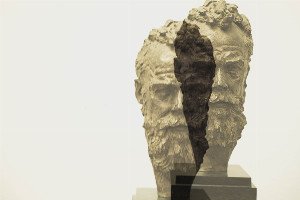Matylda Sobczak
Józef Młot-Mróz
Introduction
Józef młot-mróz. Józef Młot-Mróz, a Polish refugee in Salem, MA, was a prolific anti-communist, anti-Semite, and right-wing extremist. Explore his Cold War political activities, hate sheet distribution, and impact on New England.
Abstract
Józef Młot‑Mróz, a Polish refugee living in Salem, Massachusetts, was an anti‑communist, an anti‑Semite, and a right‑wing extremist. His political activity was frequent and varied, and he is thought to have participated in hundreds of demonstrations and distributed over a million copies of a hate sheet he regularly edited. He considered himself a one‑man crusader against communism, and as such was a frequent counter‑protester to many progressive and left‑wing initiatives. As the founder and only president of the Anti‑Communist Confederation of Polish Freedom Fighters, Młot‑Mróz often used the organization as a mouthpiece for his own views. His obsession with fighting “Jewish‑Communism” was heavily influenced by the notion of the “Jewish conspiracy” and other common anti‑Semitic tropes. This made his activity somewhat of a concern for Jewish Americans in New England. Due to the erratic nature of his behavior, he received noticeable press coverage in various parts of the U.S., especially in the Greater Boston area, where he became quite recognizable. He was not recognized by the wider Polish American community, which suggests a lack of support for extremist ideas within that ethnic group during the Cold War.
Review
This paper presents a compelling and timely exploration of Józef Młot-Mróz, an under-examined figure whose activities offer a fascinating window into the complexities of Cold War-era extremism in the United States. The abstract immediately establishes Młot-Mróz as a multifaceted subject – a Polish refugee, fervent anti-communist, anti-Semite, and right-wing extremist operating in New England. By focusing on an individual whose political engagement was both prolific and intensely localized, the study promises to illuminate how broader ideological conflicts manifested in grassroots activism, hate speech, and community tensions. This research appears poised to make a significant contribution to the historiography of domestic extremism, immigrant radicalization, and the social dynamics of the Cold War. The abstract highlights several strengths of the potential full paper, particularly its detailed characterization of Młot-Mróz’s activities and motivations. His role as a "one-man crusader," founder of the Anti-Communist Confederation of Polish Freedom Fighters, and prolific distributor of hate literature underscores his singular impact and the potential for an individual to generate considerable local concern. The paper also effectively connects his anti-communism with deeply ingrained anti-Semitic tropes, specifically the "Jewish conspiracy" and "Jewish-Communism," providing crucial context for understanding the ideological underpinnings of his behavior. Furthermore, the observation that Młot-Mróz, despite his local notoriety, was not recognized by the wider Polish American community offers a valuable nuance, suggesting an important counter-narrative regarding the reception of extremist views within an ethnic group during this period. While the abstract outlines a rich narrative, a full paper would benefit from a deeper engagement with the specific nature of his press coverage, the precise content of his "hate sheets," and the broader socio-political environment that enabled his sustained activity. Further, exploring the mechanisms through which his erratic behavior became "noticeable" and generated "concern" for Jewish Americans could offer deeper insights into community responses to extremism. Overall, this study appears to be an important and well-conceived examination of a singular, yet illustrative, figure. Its potential to shed light on the intersection of refugee identity, ideological fervor, and local political radicalism during the Cold War makes it a valuable addition to the field.
Full Text
You need to be logged in to view the full text and Download file of this article - Józef Młot-Mróz from Ad Americam .
Login to View Full Text And DownloadComments
You need to be logged in to post a comment.
Top Blogs by Rating
Unlock Your Brainpower: Master...
By Sciaria
Unraveling Heredity: Beyond th...
By Sciaria
The Healing Power of "Ahhh": M...
By Sciaria
Favorite Blog
Unleash Your Inner Explorer: T...
By Sciaria
Ops Debt: Unmasking the Silent...
By Sciaria
The Unspoken Wisdom: Embracing...
By Sciaria





